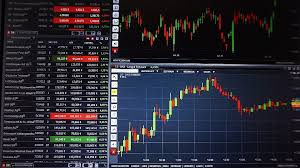
Understanding the Forex Currency Market: Strategies and Insights
The Forex currency market is a global decentralized platform where currencies are traded. It is one of the largest and most liquid financial markets in the world, with a daily trading volume exceeding $6 trillion. For aspiring traders and investors, forex currency market trading MT5 Forex Brokers provide a myriad of tools and resources to navigate this complex landscape effectively. This article will explore the fundamental aspects of Forex trading, including the key concepts, strategies, and market factors that every trader should understand.
What is Forex Trading?
Forex trading involves the buying and selling of currencies with the aim of making a profit. Unlike traditional stock exchanges, the Forex market operates 24 hours a day, five days a week, allowing traders to engage at any time. Currency pairs, such as EUR/USD or GBP/JPY, represent the value of one currency relative to another, forming the basis for trading decisions.
The Structure of the Forex Market
The Forex market consists of several key components, including:

- Market Participants: Participants include central banks, financial institutions, corporations, retail traders, and hedge funds. Each group has its unique motivations for trading.
- Currency Pairs: Currencies are traded in pairs, with the base currency and the quote currency. The exchange rate indicates how much of the quote currency is needed to purchase one unit of the base currency.
- Market Hours: The Forex market is open around the clock, divided into three major trading sessions: the Asian, European, and North American sessions.
Forex Trading Strategies
Successful trading in the Forex market requires a solid strategy. Here are some of the most widely used approaches:
- Day Trading: This strategy involves executing trades within the same day to capitalize on small price movements. Day traders often utilize technical analysis and chart patterns to make informed decisions.
- Swing Trading: Swing traders hold positions for several days or weeks to benefit from anticipated price movements. This strategy typically requires a higher risk tolerance and a keen understanding of market trends.
- Scalping: Scalpers make quick trades for small profits, focusing on high liquidity and rapid execution. This fast-paced strategy demands a significant time commitment and rigorous risk management.
- Position Trading: This long-term strategy involves holding trades for extended periods, often based on fundamental analysis. Position traders look for macroeconomic trends and geopolitical events that may influence currency prices over time.
Key Factors Influencing Currency Prices
Currency values fluctuate based on various factors, including:

- Economic Indicators: Economic data such as GDP growth, unemployment rates, inflation, and consumer spending significantly impact currency valuation.
- Central Bank Policies: Interest rates and monetary policy decisions by central banks directly affect currency strength. Traders closely monitor central bank announcements and economic outlooks.
- Geopolitical Events: Political stability, trade agreements, and international relations can lead to volatility in currency markets. Events such as elections or policy changes can have immediate and lasting effects on currencies.
- Market Sentiment: Traders’ perceptions and reactions to news events can drive price movements. Sentiment analysis can provide insights into potential market direction.
Risk Management in Forex Trading
Effective risk management is crucial for Forex trading success. Here are some best practices:
- Use Stop-Loss Orders: A stop-loss order automatically closes a trade at a predetermined price to limit potential losses.
- Position Sizing: Determine the appropriate position size based on your account balance and risk tolerance. Avoid risking more than 1-2% of your trading capital on a single trade.
- Diversification: Spread your investments across different currency pairs to reduce risk exposure.
- Stay Informed: Keep up with market news and economic indicators that may impact trading decisions.
Conclusion
The Forex currency market offers immense opportunities for traders willing to invest time and effort into understanding its dynamics. Whether you’re a novice trader or an experienced professional, mastering Forex trading requires knowledge and a well-defined strategy. By grasping the fundamental concepts, implementing robust trading strategies, and managing risk effectively, you can increase your chances of success in this fast-paced and exciting market.
As you embark on your trading journey, consider leveraging resources such as MT5 Forex Brokers to enhance your trading experience. Remember that consistent education and practice are key to achieving your financial goals in the Forex arena.
